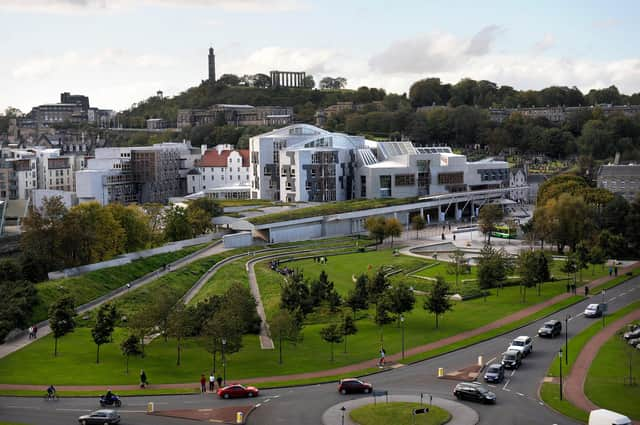Scottish Parliament cannot be a proper forum for national debate until it stops being part-time – Brian Wilson


It had been, he said, a genuine eye-opener about how Central Belt-oriented Scottish politics, including Holyrood, is. He went away committed to raising some of the issues he has encountered along the way.
As an opposition politician he could only extend the courtesy of listening and learning. Ministers, who are most in need of such humility to inform decision-making, normally stay only long enough to have their pictures taken and meet a couple of dignitaries, preferably of their own persuasion.
Advertisement
Hide AdAdvertisement
Hide AdYet remoteness is less a function of geography than a state of mind. I wonder how much time Scottish ministers, of whom there are 29, spend in the least prosperous or photo opportunity-generous parts of Glasgow or Edinburgh, never mind Aberdeen or Stranraer, exploring the granularity of what makes a difference, for better or worse?
The theory of devolution, I suppose, was that with lots more politicians and a Parliament for them to fill, there would be far more and better-informed debate around every Scottish issue. Does anyone recognise that description of Holyrood?
When future researchers look back to the early 21st century for enlightenment about Scottish society, the last place they will find it is in the verbatim record of the Scottish Parliament where there is far too little real debate about anything because that is how it is set up.
The chamber is occupied for little more than 100 days a year, or actually half-days since MSPs don’t normally kick off until 2pm and knock off in time for tea. Speeches are curtailed to a few minutes. Anyone with serious expertise in any subject which requires time to expound upon soon discovers he or she is in the wrong place.
Returning to matters which prompted Mr Sarwar’s comments, there are two huge transport issues affecting north and west Scotland. First, the interwoven problems of Caledonian MacBrayne and the fiasco at Ferguson’s in Port Glasgow. Second, the air traffic controllers’ dispute with Highlands and Islands Airport which, like CalMac (and indeed Ferguson’s) is a wholly owned Scottish government subsidiary.
Each merits full-scale debate at Holyrood – not occasional questions met with bland, scripted answers, but with MSPs bringing local knowledge to bear on subjects that affect their constituents’ deeply; speaking for as long as required to explore complex arguments with ministers forced to engage and answer.
During his Lewis visit, Mr Sarwar met air traffic controllers and said afterwards: “I find it shameful and astonishing that neither the Cabinet Secretary nor transport minister has been prepared to meet, listen and learn as I have today.” He was 100 per cent correct. But without the corrective of parliamentary scrutiny, it is all too easy to sub-contract responsibilities to third parties.
In spite of everything going on with ferries and airports, the transport minister, Graeme Dey, has failed during his first near-100 days in office to visit either or to meet anyone at the sharp end of these issues. The civil servants advice is undoubtedly: “Stay away and it will pass. Nobody down here’s Interested.” Perhaps Mr Sarwar can help to change that.
Advertisement
Hide AdAdvertisement
Hide AdBut I repeat, remoteness is not just a function of geography. This week, we heard even more depressing statistics about the attainment gap widening between affluent and poor areas, on top of even gloomier numbers about the life expectancy chasm between parts of Scotland which are a few miles apart physically and light years culturally.
If devolution was working as its advocates intended, the vastly increased cast of ministers and advisers would be going into the hearts of the left-behind communities, listening and learning. There would be open-ended hours of debate at Holyrood to identify causes and solutions.
Changing the Holyrood procedures and mindset to make it a proper forum for national debate would not of itself resolve these issues. It would however be an indication of serious intent.
A message from the Editor:
Thank you for reading this article. We're more reliant on your support than ever as the shift in consumer habits brought about by coronavirus impacts our advertisers.
If you haven't already, please consider supporting our trusted, fact-checked journalism by taking out a digital subscription.
Comments
Want to join the conversation? Please or to comment on this article.
